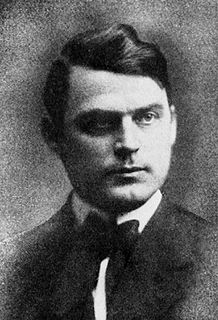A Quote by Margaret Thatcher
The accumulation of wealth is a process which is of itself morally neutral. True, as Christianity teaches, riches bring temptations. But then so does poverty.
Related Quotes
It is true that so far as wealth gives time for ideal ends and exercise to ideal energies, wealth is better than poverty and ought to be chosen. But wealth does this in only a portion of the actual cases. Elsewhere the desire to gain wealth and the fear to lose it are our chief breeders of cowardice and propagators of corruption. There must be thousands of conjunctures in which a wealth-bound man must be a slave, whilst a man for whom poverty has no terrors becomes a freeman.
It was with the Industrial Revolution, as society plunged ever more eagerly into the conquest of material riches and bent all its energies to the accumulation of goods, that material poverty became a major problem. Obviously, this meant abandonment or downgrading of spiritual values, virtue, etc. To share or not to share in the increase of the collective wealth-this was the Number One question. It was the desire to acquire wealth that prompted the poor to start fighting.
There is little favorable to be said about poverty, but it was often an incubator of true friendship. Many people will appear to befriend you when you are wealthy, but precious few will do the same when you are poor. If wealth is a magnet, poverty is a kind of repellent. Yet, poverty often brings out the true generosity in others.
The contempt of riches in philosophers was only a hidden desire to avenge their merit upon the injustice of fortune, by despising the very goods of which fortune had deprived them; it was a secret to guard themselves against the degradation of poverty, it was a back way by which to arrive at that distinction which they could not gain by riches.








































